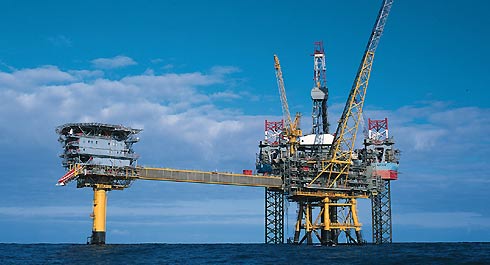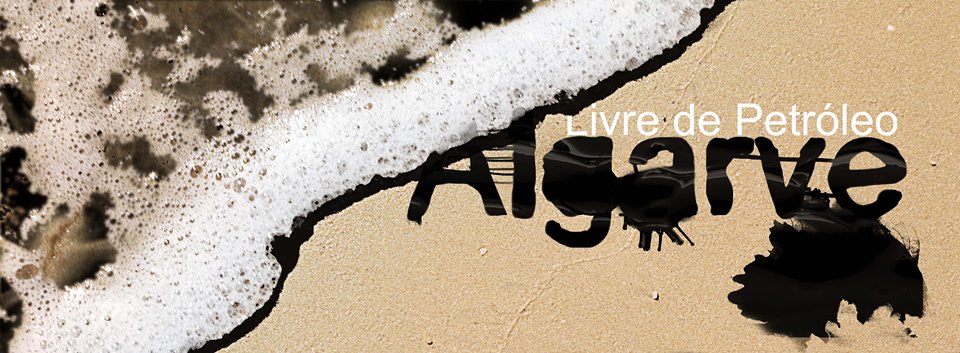 The possible exploitation of oil and natural gas on the Algarve coast is worrying the PALP – Algarve Free Oil Platform -, which has just been created. The group made up of environmental associations, citizens and entities in the Algarve region complains about the lack of information on the environmental and economic risks for the region and asks for an environmental impact study to be carried out and disseminated.
The possible exploitation of oil and natural gas on the Algarve coast is worrying the PALP – Algarve Free Oil Platform -, which has just been created. The group made up of environmental associations, citizens and entities in the Algarve region complains about the lack of information on the environmental and economic risks for the region and asks for an environmental impact study to be carried out and disseminated.
At this moment, the PALP is part of the Quercus, Almargem, SPEA – Portuguese Society for the Study of Birds, a glocal Faro: Algarve Free Oil Movement (MALP), the New Loops, Ea Peace and Art Society.
Repsol, in partnership with Partex, following the contract signed with the Portuguese State in 2011, will begin this year the drilling and exploration of natural gas in the region.
Gil Matos, from Associação Almargem, explained to Sul Informação that «the contracts between the Government and the oil companies passed “by the side” of the population. The prospecting is already underway. 2D and 3D seismic exploration has already been carried out, and this year there will be drilling. It will still be prospecting drilling, but it is drilling».
Therefore, «we want an environmental impact study to be carried out, so that the risks of oil exploration for the Algarve are known: what will happen in the event of an accident, what are the possible damages to Tourism… There is no information on what could happen if such a situation occurs'.
According to Gil Matos, even for the prospecting phase, «usually, some study is always carried out, or something» but, in this case, «if it was done, we don't know anything and nothing was disclosed». This is despite the fact that drilling is planned for this year.
"We want to hold debates with the population, meet with local authorities and the Government so that positions can be taken", adds Gil Matos.
For now, meetings with municipal executives have been requested so that the PALP can express its concerns.
The new platform will ask the presidents of all city councils in the region for "clarifications on all decisions already taken in the context of hydrocarbon exploration in the Algarve, on the conditions stipulated in the exploration contract between the State and the oil companies and on the positioning policy of the heads of the Algarve municipalities on the exploration of oil and natural gas in the Algarve».
For Gil Matos, «it's not just the environmental and economic issue that drives us, it's also knowing what our country will gain from this and whether these risks are worth it. Normally, oil exploration is thought to be profitable, but that is not always the case. It doesn't seem to us that it is all that beneficial, because we don't know the consequences involved».
country will gain from this and whether these risks are worth it. Normally, oil exploration is thought to be profitable, but that is not always the case. It doesn't seem to us that it is all that beneficial, because we don't know the consequences involved».
The Algarve Livre de Petróleo Platform sees “with great apprehension the future of the region, taking into account the possible environmental impacts that such a measure may have, the incompatibility between a tourism region that wants excellence and the exploration of hydrocarbons, the drilling of high risk in an area of high seismic danger, the impact on the region's economy with this clear change in the development paradigm, the possible loss of resources that an accidental hydrocarbon spill would bring to an equally important activity in the Algarve such as fishing and finally, the impact on the quality of life of the people who live here».
The result of the first prospecting in the Algarve will be known this year, probably in the fourth quarter, when the consortium led by the Spanish oil company Repsol – of which Partex, with 10% is a part – should move towards the completion of the first drilling in the offshore offshore , more than 30 kilometers from the Algarve coast.
The specific drilling area is identified in the data grid collected by the survey of the marine drilling – the so-called “3D seismic” – which provided the geological reading of the coastal soils at a three-dimensional level, after the first reading of the 2D data was taken.
In February, in statements to "Expresso", António Costa Silva, president of Partex, had revealed that prospecting for natural gas on the Algarve coast could "be a good surprise for Portugal", since "the area with potential reserves of natural gas seems to have quantities greater than the volume initially forecast, corresponding to a natural gas reserve that could be three to four times larger than the reserves in the Poseidon field, in the Gulf of Cádiz, about 30 kilometers from Huelva, where gas was mined. for many years until these reserves were depleted'.
Quercus and Almargem, in individual actions, had already demanded in July and August of last year, respectively, Environmental Impact Studies in relation to the exploration of hydrocarbons in the Algarve, but without success.


















Comments